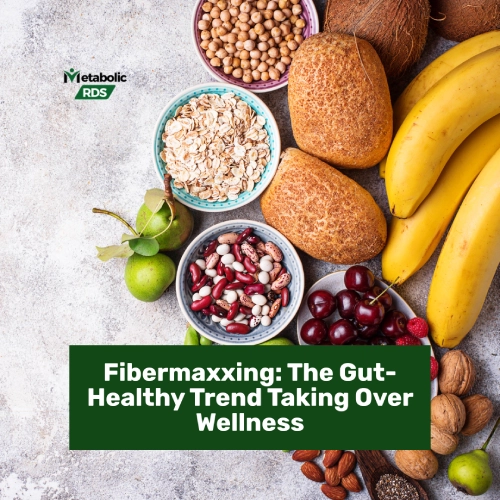By clicking “Accept All Cookies”, you agree to the storing of cookies on your device to enhance site navigation, analyze site usage, and assist in our marketing efforts. View our Privacy Policy for more information.
Mummies, Genes, and Cholesterol
For some people, consuming foods high in dietary cholesterol, like eggs, may lead to a modest increase in LDL cholesterol levels.
By
February 12, 2024

Introduction:
High cholesterol levels have long been associated with an increased risk of heart disease. While genetics can play a role in determining cholesterol levels, dietary interventions and modern insights have shown promise in managing this condition. In this blog post, we will explore the historical context of high cholesterol, delve into the impact of genetics, discuss the fascinating discovery of atherosclerosis in ancient mummies, and explore dietary approaches like statins and vegan diets. Additionally, we will touch upon the role of CT scans in identifying plaque buildup in the arteries.
Understanding Cholesterol:
Cholesterol is a fatty substance found in our blood that plays a crucial role in building cell membranes and producing hormones. However, when levels of cholesterol become elevated, it can lead to the accumulation of plaque in the arteries, a condition known as atherosclerosis. This buildup narrows the arteries, restricting blood flow and increasing the risk of heart disease.
The relationship between dietary intake of cholesterol, particularly from sources like eggs, and its impact on blood serum cholesterol levels and heart disease has been a topic of debate and research for years. Here's a breakdown of the role of dietary cholesterol:
- Dietary Cholesterol Intake:
- Dietary cholesterol is the cholesterol found in the foods we consume, such as eggs, meat, and dairy products.
- Eggs are one of the most well-known sources of dietary cholesterol, with around 186 milligrams of cholesterol per large egg yolk.
- Blood Serum Cholesterol:
- Cholesterol in the bloodstream can be categorized into two main types: LDL (low-density lipoprotein) cholesterol and HDL (high-density lipoprotein) cholesterol.
- LDL cholesterol is often referred to as "bad" cholesterol because high levels of LDL cholesterol in the blood can increase the risk of heart disease.
- HDL cholesterol is considered "good" cholesterol because it helps remove LDL cholesterol from the bloodstream.
- Impact of Dietary Cholesterol on Blood Serum Cholesterol:
- Research on the direct relationship between dietary cholesterol and blood serum cholesterol has shown mixed results. Some individuals are more sensitive to dietary cholesterol intake than others.
- For some people, consuming foods high in dietary cholesterol, like eggs, may lead to a modest increase in LDL cholesterol levels.
- However, it's essential to note that the increase in LDL cholesterol due to dietary cholesterol varies from person to person. Some individuals may experience a significant rise, while others may see little to no change.
- It's not just dietary cholesterol that affects blood cholesterol levels. Other factors, such as saturated and trans fats, have a more substantial impact on LDL cholesterol levels. Foods high in saturated and trans fats, like fried and processed foods, can raise LDL cholesterol levels more significantly than dietary cholesterol alone.
- Heart Disease Risk:
- High LDL cholesterol levels are associated with an increased risk of heart disease.
- To reduce the risk of heart disease, experts recommend focusing on dietary patterns rather than singling out individual foods like eggs. A heart-healthy diet includes:
- Increasing consumption of fruits and vegetables.
- Choosing whole grains over refined grains.
- Opting for lean protein sources like poultry, fish, and legumes.
- Limiting saturated and trans fats by reducing the intake of fried and processed foods.
- Personalized Approach:
- It's essential to consider an individual's overall diet, genetics, and response to dietary cholesterol when assessing its impact on blood serum cholesterol.
- Some people can safely consume eggs in moderation as part of a balanced diet, while others may need to be more cautious.
Plant-Powered Approach: Vegan Diets:
Dietary choices also play a pivotal role in cholesterol management. A vegan diet, which eliminates all animal products, has been shown to have a positive impact on cholesterol levels. Plant-based diets are naturally low in saturated fats, the kind of fats that can raise LDL cholesterol. Instead, they emphasize whole grains, fruits, vegetables, nuts, and seeds, which can help lower LDL cholesterol and improve overall heart health.
The Genetic Connection:
Genetics can influence an individual's cholesterol levels. Some people inherit genes that predispose them to high cholesterol, making it more challenging to control their lipid profile through diet alone. Familial hypercholesterolemia (FH) is one such genetic condition that results in extremely high LDL (low-density lipoprotein) cholesterol levels, often requiring medical intervention.
Ancient Clues: Mummies with Atherosclerosis:
In recent years, researchers made a surprising discovery while examining mummies from ancient civilizations. CT scans of mummies dating back thousands of years revealed evidence of atherosclerosis. This finding suggests that high cholesterol and heart disease are not solely modern-day problems but have plagued humanity throughout history. These insights emphasize the significance of genetic factors in cholesterol management. For more about those mummies, you can read here
Modern Solutions:
Fortunately, modern medicine offers various tools and interventions to manage high cholesterol effectively. Statins, a class of medications, are commonly prescribed to lower LDL cholesterol levels. They work by inhibiting the production of cholesterol in the liver, reducing the risk of plaque formation.
Identifying Plaque with CT Scans:
Advancements in medical imaging, particularly the use of CT scans, have revolutionized the diagnosis and monitoring of atherosclerosis. These scans can provide detailed images of the coronary arteries, helping doctors identify the presence and extent of plaque buildup. This non-invasive approach allows for early intervention and tailored treatment plans.
Conclusion:
High cholesterol is a complex condition influenced by genetics, diet, and lifestyle. The historical discovery of atherosclerosis in ancient mummies underscores the significance of arterial plaque/atherosclerosis throughout history. Today, a combination of genetic insights, modern medications like statins, and dietary approaches such as vegan diets offer effective tools for managing high cholesterol. Additionally, the use of CT scans allows for accurate diagnosis and early intervention, ultimately reducing the risk of heart disease. As we continue to learn from the past and embrace modern advancements, the battle against high cholesterol remains hopeful and promising.

This blog provides general information and discussions about health and related subjects. The information and other content provided in this blog, website or in any linked materials are not intended and should not be considered, or used as a substitute for, medical advice, diagnosis or treatment. This blog does not constitute the practice of any medical, nursing or other professional health care advice, diagnosis or treatment. We cannot diagnose conditions, provide second opinions or make specific treatment recommendations through this blog or website.
If you or any other person has a medical concern, you should consult with your health care provider or seek other professional medical treatment immediately. Never disregard professional medical advice or delay in seeking it because of something that you have read on this blog, website or in any linked materials. If you are experiencing a medical emergency, please call 911 or call for emergency medical help on the nearest telephone immediately.





